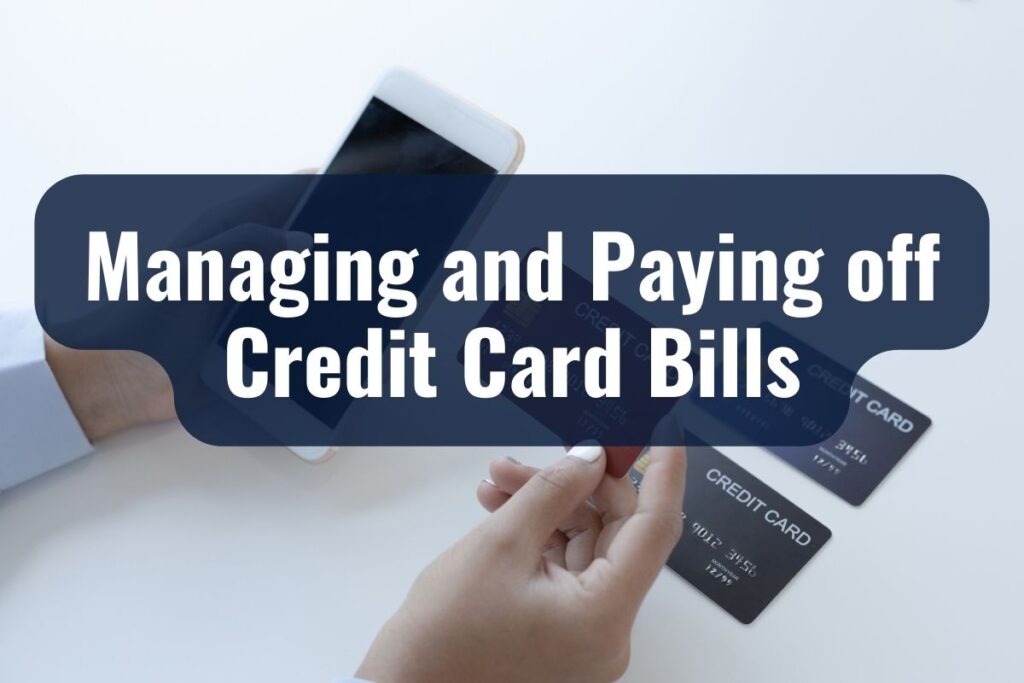Moving to a new country comes with its fair share of adjustments, and the financial system is no exception. France, while globally connected, has its unique nuances when it comes to credit cards.
For a foreigner, understanding these nuances not only provides convenience but can also save money and avoid potential pitfalls. By familiarizing oneself with credit cards in France, one can make informed decisions, ensuring seamless transactions whether it’s for daily shopping, dining out, or bigger expenses.
Get An Online Account With Free Credit Card Here
- Apply here
- Pick the services you need.
- Insert your information.
💡 The website is in English.
- France’s credit card landscape has evolved significantly, mirroring its rich history.
- French credit cards operate differently from many international models, making understanding their basics vital.
- Key credit card features like “débit différé” offer users flexibility in payment.
- The application process for foreigners is structured, requiring specific documentation and sometimes consideration of international credit history.
- In daily life, credit cards in France are versatile, being widely accepted in various establishments with a focus on security.
- Properly managing and timely payment of credit card bills is essential for maintaining good financial health.
- Prompt and appropriate action
For those accustomed to the credit card systems in countries like the United States or Canada, there might be slight differences in how things work in France. For instance, while credit cards in many countries often come loaded with rewards, cashbacks, and myriad offers, French credit cards might be more straightforward with their offerings.
Moreover, the concept of ‘credit’ is sometimes viewed differently, making the French system more conservative in some aspects. However, don’t be deterred; with a hint of financial savvy and the right information, one can navigate the French credit card system with ease and confidence.
The Basics of French Credit Cards

Navigating the maze of credit card options in a new country can feel like deciphering an intricate dance. But fear not; France’s credit card system, once understood, offers both simplicity and efficiency. Let’s explore the essentials and provide a reassuring touchstone for anyone trying to get a grip on this pivotal financial tool in France.
The Difference Between “Carte Bancaire” and International Credit Cards
At the heart of France’s credit card system is the “Carte Bancaire” (often abbreviated as CB). This card system is predominantly a debit card service that’s linked directly to one’s bank account. Whenever a transaction is made, the amount is immediately, or within a few days, deducted from the linked account. It’s the most widespread card in France and is accepted almost universally within the country.
On the other hand, international credit cards like Visa, MasterCard, or American Express are also available and widely accepted. These operate more like traditional credit cards where you are billed periodically for your expenditures. However, it’s worth noting that not all establishments, especially some smaller ones in rural areas, may accept all types of international credit cards.
Common Credit Card Providers in France
While many banks offer the Carte Bancaire as a standard service when you open a bank account, there are several significant players when it comes to credit card providers:
BNP Paribas: One of the leading banks in France, it provides a range of credit card options tailored for different income levels and spending habits.
Société Générale: Known for its robust customer service, this bank caters to both locals and foreigners with varied credit card offerings.
Crédit Agricole: With its roots in agricultural finance, this bank has expanded its horizons and offers a suite of credit card services suitable for diverse needs.
Caisse d’Epargne: Another giant in the French banking world, its credit cards are known for their reliability and widespread acceptance.
While these are some of the major players, many other banks and financial institutions offer credit cards. It’s always a good idea to shop around, compare features, and perhaps even seek a bit of financial advice to find the card that best suits your needs in France.
Understanding Credit Card Features
Delving into the features of credit cards in France can be akin to unwrapping a present, layer by layer. Each card and its provider offers a myriad of options, perks, and conditions. Let’s carefully unravel these features, ensuring that by the end, you’ll feel both informed and comforted about making the right choice.
Credit Limits and How They Are Determined
In France, as with many other countries, your credit limit (or “plafond de crédit”) determines the maximum amount you can spend on your card before needing to pay it off. This limit is not static and can vary based on:
Your income and financial stability: Banks will often assess your monthly earnings and expenditures to gauge how much credit they can offer you.
Banking history: If you’ve had an account with a bank for several years and maintained good financial behavior, you might be offered a higher credit limit.
Type of card: Premium cards often come with higher credit limits, accompanied by more perks (and sometimes, higher fees).
Fees and Interest Rates
It’s crucial to be aware of potential fees and interest rates associated with your credit card:
Annual/Monthly Fees: Many credit cards come with annual or monthly fees, though some basic cards might waive them.
Foreign Transaction Fees: If you use your French credit card outside of the Eurozone, you might be charged a foreign transaction fee. It’s a percentage of the transaction and varies between card providers.
Cash Advance Fees: Withdrawing cash using your credit card might come with a fee and higher interest rates.
Interest Rates: If you don’t pay off the full balance by the due date, interest will be charged on the remaining amount. Rates can vary significantly, so it’s essential to check and understand the “taux d’intérêt” associated with your card.
Benefits Such as Cashback, Rewards, and Travel Insurance
While the French credit card system might historically lean more towards functionality than frills, many modern cards come with a host of benefits:
Cashback: Some cards offer a percentage of your expenditure back, either as a credit on your account or points that can be redeemed.
Reward Points: Depending on the card, you might earn points for every Euro spent. These points can be exchanged for goods, services, or even travel bookings.
Travel Insurance: Premium cards often come with built-in travel insurance, covering everything from trip cancellations to medical emergencies abroad.
As you explore these features, remember to read the fine print and, if necessary, seek advice. The right card can be a tool not just for transactions but also for saving money and accessing valuable perks.
The Application Process

Embarking on the journey to get a credit card in France can evoke a blend of excitement and, perhaps, a pinch of anxiety, especially for a foreigner. However, armed with the right knowledge and a step-by-step approach, the application process becomes less daunting and more of a structured dance. Let’s guide you through this rhythm with clarity and reassurance.
| Requirement | Description |
| Proof of Identity | Passport, European identity card, or residence permit. |
| Proof of Address | Utility bill, rent receipt, or any official document with address. |
| Proof of Income | Recent pay slips, tax returns, or employment contract. |
| Bank Statements | Recent statements from French or home country accounts. |
| Stay Duration | Visa validity might be considered. |
| Credit History from Home | Can be positive (enhances application), neutral (not considered), or negative (possible stricter terms). |
Typical Requirements for Foreigners Applying for a Credit Card
While each bank may have its distinct criteria, some commonalities are found across the board when it comes to foreigners applying for credit cards:
- Proof of Identity: This can include your passport, European identity card, or a residence permit if applicable.
- Proof of Address: A utility bill (like electricity or water), a rent receipt, or any official document that clearly shows your address in France should suffice.
- Proof of Income: Banks often require evidence of steady income to assess your financial stability. This can be in the form of recent pay slips, tax returns, or an employment contract.
Documentation and Paperwork Required
While the previously mentioned proofs are fundamental, some additional documentation might be requested:
- Bank Statements: Some banks might ask for recent bank statements, either from your French account or from an account in your home country, to understand your financial behavior better.
- Stay Duration: If you’re in France on a visa, its validity duration might be considered during the application process.
- Credit History: Although French banks may not always access your credit history from your home country, if you have documentation proving good credit standing, it could bolster your application.
How Credit History from Your Home Country Might Impact Your Application
Credit history is a record of how you’ve managed debts and finances. In many countries, this history plays a pivotal role in determining your creditworthiness. In France, while your local French credit behavior is more influential, the credit history from your home country can still play a role:
- Positive Impact: If you’ve maintained an impeccable credit record in your home country, presenting this could potentially enhance your application. It portrays you as a responsible borrower.
- Neutral Impact: In many instances, French banks may not consider your foreign credit history at all, relying instead on your current financial status and documentation in France.
- Negative Impact: If you’ve had significant financial issues in your home country, it’s wise to be transparent with the bank. They might still be willing to offer a card, but perhaps with a lower credit limit or additional conditions.
Using Credit Cards in Daily Life
Once you’ve successfully acquired your French credit card, the next phase begins: integrating it into your daily life. Like learning the subtle notes in a glass of Bordeaux or deciphering the layers of a classic French pastry, using your credit card effectively in France involves understanding a few key nuances.
Everyday Transactions
French society is increasingly cashless, and credit cards are a widely accepted mode of payment. From the bustling boulevards of Paris to quaint villages in Provence:
Shopping: Whether it’s high fashion boutiques, local grocery stores, or weekly farmers’ markets, most vendors accept credit cards. However, for very small amounts, some might prefer cash.
Dining: Cafes, bistros, and restaurants, ranging from the Michelin-starred to the charmingly rustic, usually accept card payments. Yet, it’s a good practice to check for card logos at the entrance or ask in advance.
Online Transactions: For those moments when you prefer shopping online or booking services, French credit cards offer secure online transaction facilities. Ensure your card is activated for online payments, and always look for secure payment symbols.
Tips on Safety and Security
In the backdrop of the Eiffel Tower or while roaming the lavender fields, it’s easy to get lost in the beauty around. Yet, when it comes to credit card safety:
- PIN Protection: Always shield your PIN when entering it and avoid using easily guessable numbers like birthdays.
- Contactless Payments: Many French credit cards come equipped with contactless payment technology, allowing for quick and easy transactions. While convenient, it’s wise to check your statements regularly for any discrepancies.
- Lost or Stolen Card: In the unfortunate event that your card goes missing, inform your bank immediately. Most banks offer a 24/7 helpline for such emergencies.
Embracing the French Approach
Using a credit card in France also means embracing a bit of the French philosophy towards money:
- Budgeting: While it’s tempting to indulge in the myriad offerings of French life, it’s essential to keep track of your expenses. Many French banks offer mobile apps that can help monitor your spending.
- Punctual Payments: In line with the French value of punctuality, ensure you pay your credit card bill on time. This not only avoids interest but also ensures a positive credit history.
- Seeking Advice: If ever in doubt, or if you face any issues with your card, don’t hesitate to contact your bank. They’re more than willing to assist and ensure your financial journey in France is as smooth as a velvety French mousse.
Managing and Paying off Credit Card Bills

Holding a credit card in France is like being handed a key to unlock numerous conveniences, but with this privilege comes the responsibility of adept management. Drawing a parallel to the careful balancing act of flavors in French cuisine, handling your credit card bills requires a mix of attentiveness, discipline, and timely action. Here’s how you can master this aspect with ease and confidence.
Understanding Your Monthly Statement
Your monthly credit card statement, or “relevé de compte,” is a comprehensive record of your transactions, dues, and other pertinent details. To stay atop your financial game:
Review Regularly
Even if you track your expenses elsewhere, always go through your statement to check for any discrepancies or unfamiliar transactions.
Payment Due Date
Marked clearly on the statement, this date is crucial. Ensure you settle your bill by this day to avoid interest charges and maintain a positive credit reputation.
Minimum Payment
This is the smallest amount you can pay to keep your account in good standing. However, only paying the minimum can lead to accumulating interest on the remaining balance.
Ways to Pay Your Credit Card Bill
Paying off your credit card bill in France is straightforward, with multiple avenues available:
Direct Debit
Known as “prélèvement automatique,” this method allows the bank to automatically deduct the owed amount from your linked account. It’s hassle-free and ensures timely payments.
Bank Transfers
You can manually transfer the payment amount from your bank account to the credit card account. Most French banks offer online banking facilities to make this process seamless.
Check
While becoming less common in daily transactions, some individuals still prefer paying their credit card bill by writing a check.
Dealing with Outstanding Balances and Interest
In situations where paying off the entire balance isn’t feasible:
- Interest Rates: Remember that any remaining balance after the due date will accrue interest. Familiarize yourself with your card’s interest rate to understand potential additional charges.
- Payment Plans: If you find yourself in a tight spot, reach out to your bank. Many institutions offer payment plans or solutions to assist customers in managing their outstanding balances.
Staying Informed and Seeking Assistance
The journey of managing and paying off credit card bills is smoother when you’re well-informed.
Banks occasionally update terms, interest rates, or other features. Ensure you read any communication from your bank, so you’re always in the loop.
If you ever feel overwhelmed or uncertain, consider seeking financial advice. Many banks offer consultation services, guiding customers to make informed decisions.
If Things Go Wrong: Handling Issues
Like navigating the winding streets of Montmartre or the alleys of medieval towns, the credit card journey can occasionally present unforeseen challenges. Yet, with a calm demeanor and the right steps, any obstacle can be addressed and rectified. Let’s delve into potential issues and the pathways to resolution, ensuring you’re equipped with a map to navigate any credit card hiccup in France.
Upon spotting a transaction you don’t recognize:
- Immediate Action: Without delay, contact your bank to report the suspicious activity. The quicker you alert them, the better they can assist in mitigating any potential damage.
- Follow-Up: Banks may require you to confirm the unauthorized transaction in writing or complete specific forms. Ensure you cooperate fully and provide all necessary information.
Disputes with Merchants
Sometimes, disagreements arise regarding transactions, quality of purchased items, or services:
- Direct Communication: Initially, approach the merchant directly. Often, misunderstandings can be cleared up with open dialogue and mutual agreement.
- Bank Mediation: If the dispute isn’t resolved at the merchant level, inform your bank. They might assist by temporarily crediting the disputed amount until the issue is resolved or guide you on further steps.
Lost or Stolen Cards
Misplacing your card or falling victim to theft can be distressing, but swift action can minimize potential repercussions:
- Immediate Reporting: Call your bank’s helpline, usually available 24/7, to report the loss or theft. They will block the card to prevent any unauthorized use.
- Replacement: Once the card is reported, the bank will typically guide you through the process of obtaining a replacement.
Issues with Interest and Fees
Unexpected charges or higher-than-anticipated interest can sometimes appear on your statement:
- Clarification: Before jumping to conclusions, reach out to your bank for clarification. It’s possible that there’s a valid reason, or it might be an error on their part.
- Negotiation: If you believe that certain fees are unwarranted, or if you’re facing financial hardship, discuss with your bank. They might be willing to waive certain charges or provide alternatives.
Seeking External Help
When internal pathways don’t yield satisfactory results:
- Consumer Associations: France has several consumer associations that can offer guidance and assistance in resolving credit card issues.
- Mediation: Some disagreements might be best handled through mediation, where a neutral third party assists in finding a resolution.


